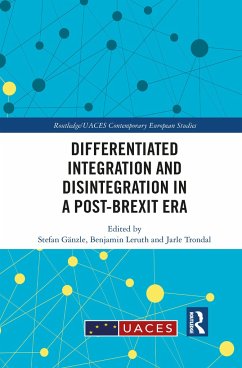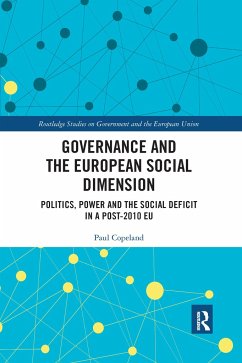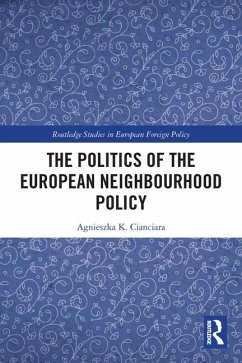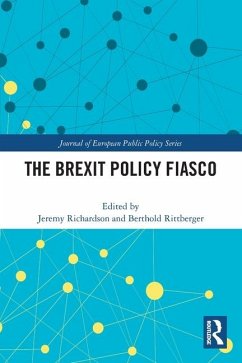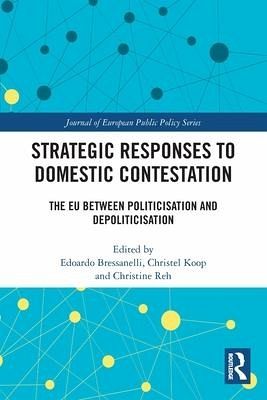
Strategic Responses to Domestic Contestation
The EU Between Politicisation and Depoliticisation
Herausgegeben: Bressanelli, Edoardo; Koop, Christel; Reh, Christine
Versandkostenfrei!
Versandfertig in 6-10 Tagen
45,99 €
inkl. MwSt.
Weitere Ausgaben:

PAYBACK Punkte
23 °P sammeln!
How have EU-level actors responded to the increase in salience and contestation across the member states? This volume explores and explains the actors' strategic responses and emphasises that domestic pressure has triggered both depoliticisation and politicisation.Long gone are the times when EU decisions left citizens indifferent, and when the supranational was largely irrelevant for public opinion and electoral politics across the member states. Instead, a string of existential crises has struck and unsettled the Union over more than a decade. These crises have politicised Europe, tested the...
How have EU-level actors responded to the increase in salience and contestation across the member states? This volume explores and explains the actors' strategic responses and emphasises that domestic pressure has triggered both depoliticisation and politicisation.
Long gone are the times when EU decisions left citizens indifferent, and when the supranational was largely irrelevant for public opinion and electoral politics across the member states. Instead, a string of existential crises has struck and unsettled the Union over more than a decade. These crises have politicised Europe, tested the endurance of the supranational system to its core, and put EU-level actors under unprecedented pressure. This volume explores how and why EU-level actors respond to the various, sometimes competing, 'bottom-up' demands, and challenges the view that domestic contestation necessarily limits EU-level room for manoeuvre. Instead, contributions show that domestic pressure can be perceived as either constraining or enabling, with responses, therefore, ranging from the restrained to the assertive. Driven by the survival of the Union, by the preservation of their own powers, and by different perceptions of domestic demands, actors will choose to politicise or depoliticise decision-making, behaviour, and policy outcomes at the supranational level. The volume concludes that whilst domestic pressure triggers supranational responses, such responses should not be assumed to be restraining; they may equally be empowering including for European integration itself.
The chapters in this book were originally published as a special issue of the Journal of European Public Policy.
Long gone are the times when EU decisions left citizens indifferent, and when the supranational was largely irrelevant for public opinion and electoral politics across the member states. Instead, a string of existential crises has struck and unsettled the Union over more than a decade. These crises have politicised Europe, tested the endurance of the supranational system to its core, and put EU-level actors under unprecedented pressure. This volume explores how and why EU-level actors respond to the various, sometimes competing, 'bottom-up' demands, and challenges the view that domestic contestation necessarily limits EU-level room for manoeuvre. Instead, contributions show that domestic pressure can be perceived as either constraining or enabling, with responses, therefore, ranging from the restrained to the assertive. Driven by the survival of the Union, by the preservation of their own powers, and by different perceptions of domestic demands, actors will choose to politicise or depoliticise decision-making, behaviour, and policy outcomes at the supranational level. The volume concludes that whilst domestic pressure triggers supranational responses, such responses should not be assumed to be restraining; they may equally be empowering including for European integration itself.
The chapters in this book were originally published as a special issue of the Journal of European Public Policy.









